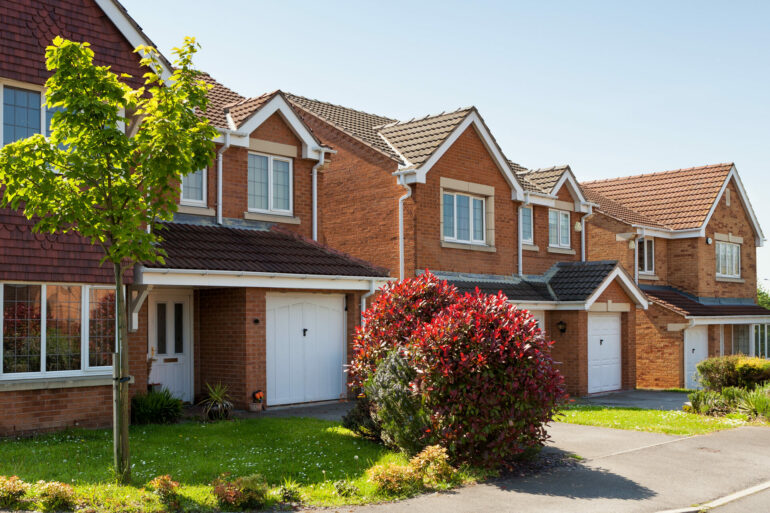Average house prices increased by 0.8% in January as the UK saw the strongest start to the year since 2005, the latest Nationwide House Price Index has revealed.
As such annual house price growth increased to 11.2% in January, from 10.4% in December.
This sees the average price of a home increase to £255,556.
Robert Gardner, Nationwide’s chief economist, said: “Annual house price growth accelerated to 11.2% in January, the strongest pace since June last year, and the strongest start to the year for 17 years. Prices rose by 0.8% month-on-month, after taking account of seasonal effects, the sixth consecutive monthly increase.
“Housing demand has remained robust. Mortgage approvals for house purchase have continued to run slightly above pre-pandemic levels, despite the surge in activity in 2021 as a result of the stamp duty holiday, which encouraged buyers to bring forward their transactions to avoid additional tax.
“Indeed, the total number of property transactions in 2021 was the highest since 2007 and around 25% higher than in 2019, before the pandemic struck.
“At the same time, the stock of homes on estate agents’ books has remained extremely low, which is contributing to the continued robust pace of house price growth.
Will the market cool in 2022?
“While the outlook remains uncertain, it is likely that the housing market will slow this year. House price growth has outstripped earnings growth by a wide margin since the pandemic struck and, as a result, housing affordability has become less favourable.
“For example, a 10% deposit on a typical first-time buyer home is now equivalent to 56% of total gross annual earnings, a record high. Similarly, a typical mortgage payment as a share of take-home pay is now above the long run average, despite mortgage rates remaining close to all-time lows.
“Reduced affordability is likely to exert a dampening impact on market activity and house price growth, especially since household finances are also coming under pressure from sharp increases in the cost of living.
“Consumer price inflation reached 5.4% in December, its fastest pace since 1992. This is more than double the Bank of England’s 2% target and inflation is set to rise further in the coming months as the energy price cap is increased. This rapid rise in inflation has been an important factor denting consumer confidence in recent months, especially how people see their own personal financial situation evolving, although as yet, this has done little to dent housing market activity.
“High inflation and growing confidence that the Omicron variant will not derail the wider economic recovery has led to increased expectations that policymakers will increase interest rates further in the months ahead.
“This will further reduce housing affordability if it feeds through to higher mortgage rates, although to date a significant proportion of the rise in longer term interest rates seen in recent months has been absorbed by lenders.”
Market response
Jeremy Leaf, north London estate agent and a former RICS residential chairman, said: “This well-established survey and trend identifier is one of the first to report on the state of health of the 2022 UK property market.
“It confirms what we have seen on the ground – a resilient market with prices still rising in response to improving but continuing low stock levels.
“Looking forward, higher interest rates and inflation will inevitably have some impact on the pace of price increases and number of transactions.’
Mark Harris, chief executive of mortgage broker SPF Private Clients, added: “Despite an interest rate rise in December and another widely expected later this week, confidence in the housing market continues unabated. As soon as the festive period was out of the way, thoughts turned once more to moving, with business proving to be brisk in January.
“Even as mortgage rates edge higher, they are still competitively priced, which should give buyers confidence to take the plunge, even in the face of higher living costs.
“With several lenders introducing longer-term fixed-rate mortgages, or tweaking existing products to make them more attractive, there is plenty to tempt borrowers looking for protection against further interest rate rises.”
Guy Harrington, CEO of residential lender Glenhawk, concluded: “The tsunami-like house price growth of the past two years shows no sign of slowing, bad news for the millions of people who remain priced out of owning their own home.
“Conventional wisdom would suggest that a combination of rampant inflation and rising interest rates, alongside a reversal of the pandemic induced urban-to-rural migration trend as buyers finally wake up to reality, will finally rein in frankly eye watering figures.
“The UK house price market has a repeated history of defying economic headwinds, however, so this is far from certain.”



